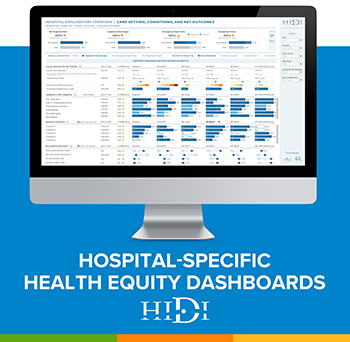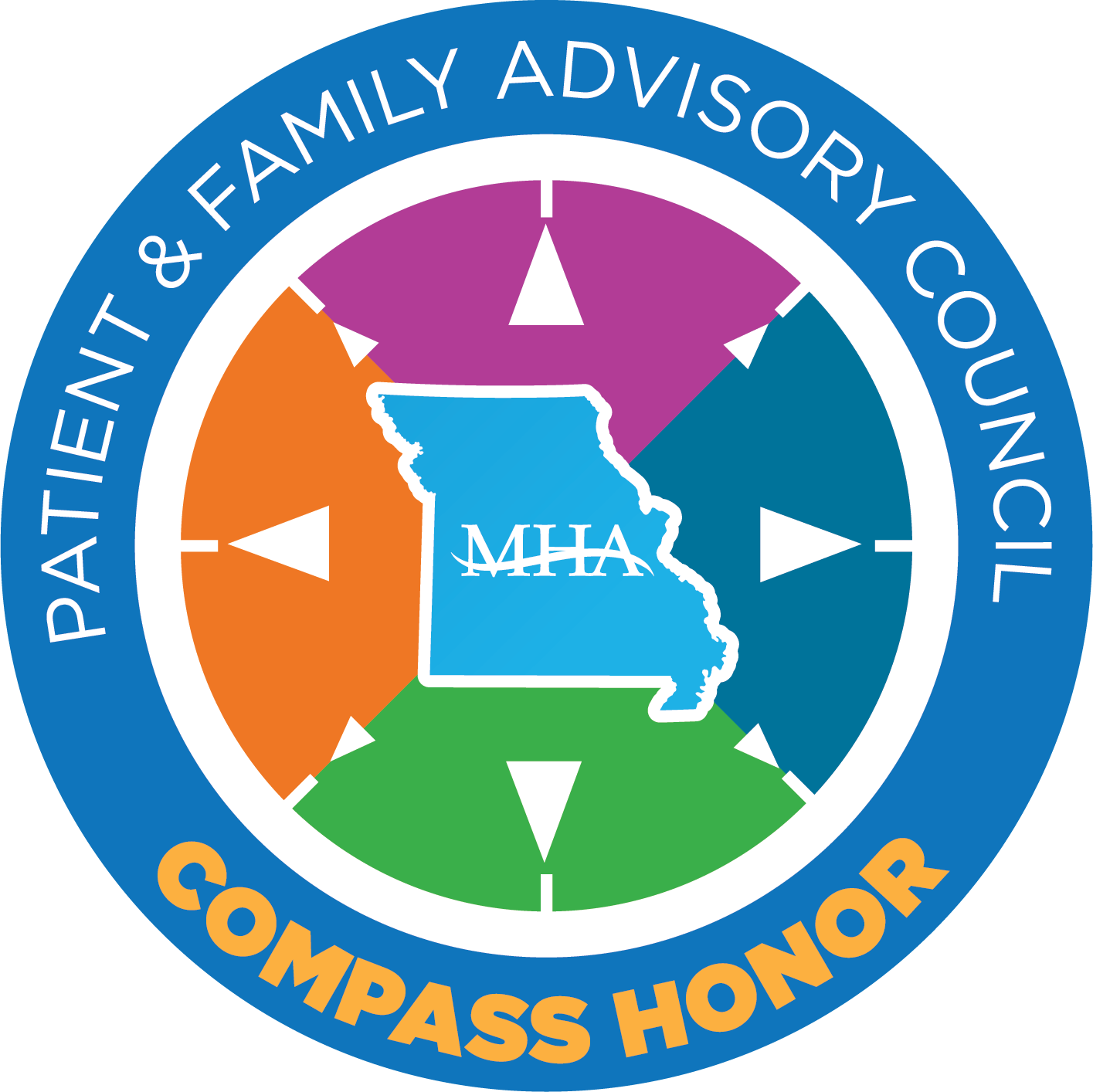Expert

Jessica Stultz
Actions
Type
Topic
- Health Equity
- Patient Engagement
- Population Health
- Quality and Safety
Tags
The Quality & Safety Update provides health care professionals with up-to-date information on current quality improvement projects, resources and quality reporting. The newsletter also highlights announcements and upcoming events that could benefit your organization.
Health Equity — Why Now and Where to Begin?
Staff Contact: Mat Reidhead
BACKGROUND: Effective Jan. 1, 2023, The Joint Commission and Centers for Medicare & Medicaid Services integrated health care equity standards into their health care accreditation and Inpatient Quality Reporting payment programs. The 2023 Hospital Inpatient Prospective Payment System final rule includes the term “health equity” 259 times, “social determinant” 59 times and its shorthand, “SDOH,” 97 times in the 2,087-page rule. In other words, CMS is leveraging its status as the single largest purchaser of health care in the U.S. to compel hospitals to the health equity table.
WHY NOW? While the renewed focus and attention to closing the gap in equitable health outcomes in the U.S. is new, the existence of health disparities and their devastating effects for vulnerable communities of all stripes, is not. The genesis of health disparity research dates to 1714 Italy, and the intersection of health disparities and SDOH has been studied since its original discovery in 1840 England.
Nearly two centuries later, we still see communities across Missouri that are, at times, separated by a few miles, but have nearly 30-year differences in average life expectancy at birth. Additionally, Black mothers in Missouri die at triple the rate of their white neighbors during the year following childbirth, while new mothers with Medicaid are eight times as likely to die following childbirth compared to their neighbors with private health insurance.
In its purest form, health equity is a societal state where everyone — regardless of appearance, access, assets or influence — has a fair and just opportunity to be as healthy as they choose. The continued existence of these profound disparities in the most affluent civilization in history cannot be considered fair or just by any observer.

WHERE TO BEGIN? Both CMS and TJC requirements emphasize data collection, stratification and analysis. To comply and improve, hospitals first must gain visibility into the health-related social needs of their specific patient populations, in addition to differences in health outcomes experienced by different sociodemographic cohorts. To assist Missouri’s hospitals in rising to and exceeding this challenge, the Hospital Industry Data Institute — the data company of MHA — recently released a set of hospital-specific health equity dashboards designed first to assist with identifying and addressing finite sources and drivers of disparity within patient populations, and secondarily, to assist member hospitals with satisfying components of the new rules related to data collection and stratification.
ACCESS: If you or any member of your team would like access to these dashboards, please take a moment to complete HIDI’s contact form and indicate that you request access to your hospital-specific health equity dashboards through Care Optics to initiate the process.
Patient Family Advisory Council Updates
Staff Contact: Jessica Stultz
MHA’s statewide Patient Family Advisory Council was formed to enhance the role of patients, family members, patient advocates, hospital staff and providers in Missouri. One of only a handful of state-level councils in the nation, MHA’s PFAC is focused on increasing the role of patients and family members to improve health care delivery and health outcomes, and reignite joy in work through improved patient-provider relationships. The PFAC web page features resources, tools and a roadmap to help build, support and guide PFAC development and performance.

COMPASS HONOR
The Compass Honor is an annual recognition established by MHA’s PFAC to recognize a Missouri hospital for outstanding efforts in effectively partnering with their PFAC. This year, the honor is expanding to include recognition for hospitals in rural areas, and applications will be accepted soon.
The 2022 Compass Honor recipient was University Health, and their success is featured online.
HEALING HAPPENS HERE
OFFICE HOURS
FEEDBACK
To better serve our members, please complete this short survey to help provide a baseline assessment of the patient and family engagement status in Missouri. The results will guide the MHA PFAC in developing additional resources and programming to best suit the needs of Missouri hospitals.
Community Health Needs Assessment Findings
Staff Contact: Stephen Njenga
Since 2010, hospitals with a 501(c)(3) tax-exempt status have been required to conduct a community health needs assessment and adopt an implementation strategy at least once every three years. MHA offers a CHNA guidance and implementation strategy document, which provides the information necessary to complete this important process.
This year, MHA embarked on a journey to review CHNAs for all member hospitals. In the last three years ending in 2022, 71 hospitals met requirements to complete a CHNA and post it on their website. It’s worth noting that from a regulatory standpoint, tax-exempt hospital organizations must provide on its annual Form 990 the most recently adopted CHNA implementation strategy and the URL(s) of the web page(s) in which the hospital has made the strategy widely available.
The MHA website highlights the top 10 priorities for all hospitals, as identified during the comprehensive review process. Mental/behavioral health, substance use and obesity accounted for nearly 44% of the issues identified by all hospitals.
MHA Awards
MHA is offering three prestigious awards to recognize the sustained improvements of its member hospitals — the Aim for Excellence Award, the Visionary Leadership Award and the Trustee of the Year Award. All awards will be presented during MHA’s Annual Convention in November.
The application and nomination forms can be found at the respective links. The deadline to apply and/or nominate is 5 p.m. Friday, May 12.

2023 Aim for Excellence Award
The Aim for Excellence Award recognizes Missouri hospitals’ innovation and outcomes related to the Triple Aim approach. Utilizing this approach, hospitals can improve the individual experience of care and the health of populations, and reduce per capita costs of care.

2023 Visionary Leadership Award
The Visionary Leadership Award recognizes outstanding achievements in clinical and health outcomes led by the nominee. New this year, eligibility has been expanded to include members of hospital or health system senior leadership.

2023 Trustee of the Year Award
The Trustee of the Year Award honors up to two trustees who currently serve, or who served within the past year, on a Missouri hospital or health system governing board for their dedication and engagement in their hospital’s activities.
Education
March 29-31 | Missouri Association of Healthcare Purchasing and Materials Management Spring Seminar and Supplier Fair
- Osage Beach, Mo. | Register
April 4 | Orientation for New Quality Directors: Eight-Part Virtual Series
-
12:30 to 1:45 p.m. | Virtual Series | Register
April 27 | Caring for the Mother-Baby Dyad Affected by SUD: Advancing Care & Family Support in Missouri
-
9:30 a.m. to 3:30 p.m. | Columbia, Mo. | Register















